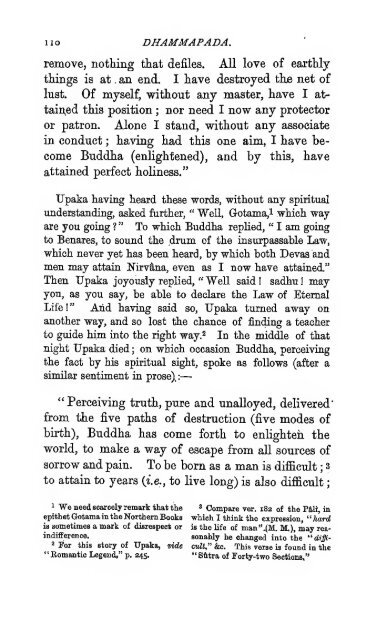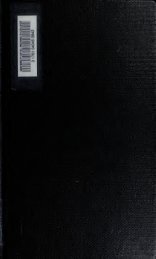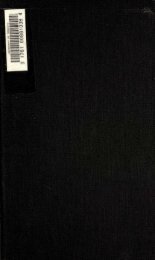Texts from the Buddhist canon : commonly known as Dhammapada
Texts from the Buddhist canon : commonly known as Dhammapada
Texts from the Buddhist canon : commonly known as Dhammapada
Create successful ePaper yourself
Turn your PDF publications into a flip-book with our unique Google optimized e-Paper software.
no DHAMMAPADA.<br />
remove, nothing that defiles. All love of earthly<br />
things is at ,<br />
an end. I have destroyed thje net of<br />
lust. Of myself, without any m<strong>as</strong>ter, have I at-<br />
tained this position ;<br />
nor need I now any protector<br />
or patron. Alone I stand, without any <strong>as</strong>sociate<br />
in conduct ; having had this one aim, I have become<br />
Buddha (enlightened), and by this, have<br />
attained perfect holiness."<br />
Upaka having heard <strong>the</strong>se words, without any spiritual<br />
understanding, <strong>as</strong>ked fur<strong>the</strong>r, " Well, G-otama,l which way<br />
are you going ? " To which Buddha rephed, " I am going<br />
to Benares, to sound <strong>the</strong> drum of <strong>the</strong> insurp<strong>as</strong>sable Law,<br />
which never yet h<strong>as</strong> heen heard, by which both Dev<strong>as</strong> and<br />
men may attaiu Nirvlna, even <strong>as</strong> I now have attained."<br />
Then Upaka joyously replied, " Well said ! sadhu ! may<br />
you, <strong>as</strong> you say, be able to declare <strong>the</strong> Law of Eternal<br />
Life !<br />
" And having said so, Upaka turned away on<br />
ano<strong>the</strong>r way, and so lost <strong>the</strong> chance of finding a teacher<br />
to guide him into <strong>the</strong> right way.^ Jn <strong>the</strong> middle of that<br />
night Upaka died ; on which occ<strong>as</strong>ion Buddha, perceiving<br />
<strong>the</strong> fact by his spiritual sight, spoke <strong>as</strong> follows (after a<br />
similar sentiment in prose), :<br />
—<br />
" Perceiving truth, pure and unalloyed, delivered'<br />
<strong>from</strong> <strong>the</strong> five paths of destruction (five modes of<br />
birth), Buddha h<strong>as</strong> come forth to enlighten <strong>the</strong><br />
world, to make a way of escape <strong>from</strong> all sources of<br />
sorrow and pain. To be born <strong>as</strong> a man is diflScult ; 3<br />
to attain to years (i.e., to live long) is also difficult<br />
1 We need scarcely remark that <strong>the</strong> s Compare ver. 182 of <strong>the</strong> PaU, in<br />
epi<strong>the</strong>t Gotama in <strong>the</strong> Nor<strong>the</strong>rn Books which I think <strong>the</strong> expression, "hard<br />
is sometimes a mark of disrespect or is <strong>the</strong> life of man".(M. M.), may rea-<br />
indifiference. sonably be changed into <strong>the</strong> "diffi-<br />
2 For this story of Upaka, vide cult," &c. This verse is found in <strong>the</strong><br />
"Romantic Legend," p. 245. " Sfttra of Forty-two Sections,"<br />
;





